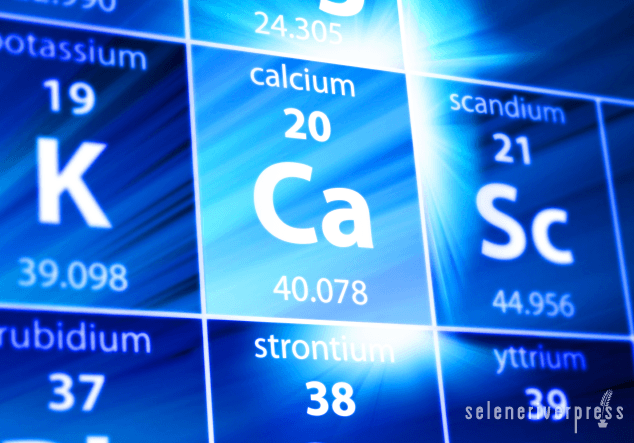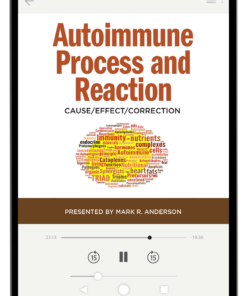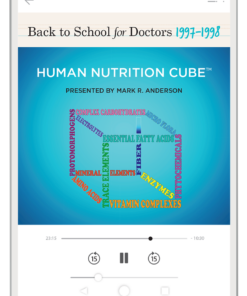From: Dr. WM
Sent: Wednesday, November 05, 2014 7:39 AM
To: Mark Anderson
Subject: I’m bummed
Mark,
I’m bummed. I recently was told that Standard Process Calcium Lactate is calcium carbonate from limestone bound to lactate from tapioca. Cripes. It’s counter to Courtney’s discussion on the easy conversion of calcium lactate to an ionized form, as compared to carbonate. Unless something incredible happens by binding it to lactic acid?
Dr. WM
From: Mark Anderson
Sent: Wednesday, November 05, 2014 1:04 PM
To: Dr. WM
Subject: RE: I’m bummed
Dr. WM,
You bum for naught. Your confusion stems from a fundamental misunderstanding of mineral salts and compounds. Calcium lactate from any source—on or off this planet—is nothing more than the element calcium (atomic number 20) bound to the ferment lactic acid. There is no such thing as an artificial or synthetic mineral (the element). You can bond a mineral to something artificial, but the mineral itself is always the element. Hold that thought.
Lactic acid (lactate) is an organic acid produced through the fermentation of glucose from any carbohydrate. (By definition, carbohydrates contain glucose.) The actual creation of lactic acid through glucose fermentation depends entirely upon the particular bacteria or yeast that acts upon the glucose source. Depending upon the bacteria or yeast involved, the fermentation of glucose could produce alcohol, i.e., beer/wine. Or it could produce CO2 for baking, as in a leaven to make bread rise. Always a natural process.
In unpasteurized milk, the milk sugar lactose is fermented by naturally occurring lactic acid bacteria (LAB) to form lactic acid. The lactic acid produces a number of excellent effects on the milk both inside and outside the body, i.e., cultured milk products and lactic acid for the G.I. tract. One of these lactic acid effects is to bind with any calcium salt in the milk, thus forming calcium lactate, i.e., a calcium/lactic-acid bond.
Calcium lactate, therefore, is the element calcium naturally bound to the ferment called lactic acid. Period. It matters not if the calcium element came from limestone or moon rock or cow’s milk.
Lactic acid (lactate) is a glucose ferment produced by bacteria or yeast. It matters not if the lactic acid ferment was formed from sour milk or beet sugar or tapioca (an inexpensive starchy substance high in glucose). Calcium is the fifth most abundant element in the Earth’s crust—also inexpensive. From the bond of these two inexpensive substances comes the also inexpensive Calcium Lactate Tablets from Standard Process.
If you would prefer to have calcium lactate centrifuged out of sour milk, we could do that and sell it to you for around $12 to $20…per tablet. The 800 size would sell to you for around $16,000. How many would you like?
You know from my classes all of the reasons we prefer calcium in the form of calcium lactate. Now you know the rest of the story.
I hope I’ve shed some light on this very important topic.
Mark
Photo from iStock/jcrosemann






This is a great explanation – thank you for this. This leaves me wondering if the calcium lactate from Standard Process has dairy derivatives or if it’s tapioca?
We’re glad you liked this information, Miranda! The answer is: No dairy–the carbohydrate is tapioca.